An excerpt from Mechanized Masterpieces 2
West End
by Neve Talbot
Styled after Little Women by Louisa May Alcott
Theodore Laurence loved Josephine March. That was the cold, hard truth. He had loved her since that first time he laid eyes on her. Sitting at his desk, he had stared out over the hedge, and there she had sat in her attic window next door. Her laughing eyes had reached out and claimed him. His mates all called him Laurie, but she began calling him ‘Teddie’ when he was but sixteen, as if she owned him, and he knew then and there she did.
Thoughts of that day five years gone filled his mind as he closed the door and left his grandfather’s house behind him. Before him, a new life, a new adventure, and the Cassiopeia: a massive triple-envelope airship unlike anything else in the skies, then tethered not a hundred yards off on the March family’s farmland, out of reach of milling crowds and prying eyes. The legendary inventor, Edward Rochester, had developed its revolutionary alloys and unique design; the crystal arrays that captured the light of the sun and transformed it into power; and the engines that translated that power into speed with maximum efficiency.
Laurie would depart that very hour. He had graduated with the highest honors from the new Massachusetts Institute of Technology, and in the process gained the notice of the genius Rochester who made himself Laurie’s mentor. Laurie would continue his education at Rochester’s foundries in Great Britain. It should have been a day full of joy. He should have been giddy with anticipation.
Should have been.
Laurie followed the automaton that propelled a trolley overladen with steamer trunks and bandboxes across the garden lawn. Such menials were hardly new, but the machine before him resembled nothing ever before put into service. Sleek and graceful, strong and durable, with technology unmatched elsewhere, the Mandroids could accomplish nearly any physical task capable of man—all but intentionally harm or inflict death. That they would never do.
The warmongers had their rail guns and cannon, their armored trains and incendiary devices, their fifteen-foot-tall mechanized monsters with Gatling guns for appendages, euphemistically dubbed ‘Peacekeepers,’ that mindlessly trammeled friend and foe alike. After the devastation of the American Civil War, in the face of British, French, and Dutch empiric brutality and conquest, Rochester swore the world needed no help from him to slaughter wholesale. He would never invent a weapon nor allow his technology to be used as such. He maintained an uneasy peace with the British Empire by allowing his foundries to remain in its territories; they smelted the alloys and fabricated the shells, but nothing more.
Instead of selling killing machines, he sought the help of Laurie’s grandfather, Mr. Laurence, and Jo’s father, Reverend March, in giving away the Mandroids to the war-ravaged refugees of the New American Alliance, the tattered remains of the United States, still destitute and starving two years after the end of the war. The two friends had become integral to the operation and true partners in the venture. Profit would come after the devastated nation got back on its feet, but the Mandroids would first change the world. They would plow fields and harvest crops, build roads and clear away rubble, and provide much-needed manpower for the decimated population.
Laurie pressed one of several glowing crystals set in a small brass box that he held, and the machine immediately halted at the gap in the hedge between his grandfather’s estate and Orchard House, the March family property. Since his first day in Concord, Laurie had known he belonged there. How many hours over the past five years had he spent snug in the attic with Jo and her sisters, acting out Jo’s ridiculous plays? Meg and Beth were like his own sisters. Little Amy was his pet. But Jo—Jo was part of him. She ever would be.
Not even her denial of him the previous morning would change it, and therein lay the rub.
Laurie huffed at himself and his pining, and reactivated the Mandroid. A simple sequence of commands directed it through the hedge, across the Marches’ kitchen garden, and into the cow pasture to the Cassiopeia. Another flick of a switch, and the machine effortlessly moved its burden up the cargo ramp and into the hold. As he stood at the bottom, staring up into the cavernous expanse, it felt empty without Jo’s luggage beside his own, despite it being filled with rack upon rack of factory-new Mandroids awaiting dispersal.
Laurie would never begrudge Beth the support of her sisters, but she made a terribly convenient screen for Jo. They all had come to take their leave: Jo, Beth, Amy; even Meg had dragged her new husband, John Brooke, away from his morning coffee to be there. Mrs. March—Marmee to the girls—stood with her husband, the good reverend, as he consulted with Rochester.
Laurie deeply felt the family’s notice, but Jo’s dodge sent him a clear message to keep at arm’s length. But then, he didn’t need her words to understand her. Her thoughts came across perfectly clear.
Well, he would do her one better: never mind arm’s length. He refused to see her at all.
He could be too busy to notice. His old school chum, Freddie Vaughn, made that easy enough. Laurie had to brief him on preflight procedures. Freddie only got the nod for the venture to England because Mr. Vaughn, a major investor in the Mandroid project, demanded it, but Freddie was thick as a brick. Rochester carefully chose his battles with the father, and Laurie must suffer the son.
Rochester’s experiments with mechanical prostheses and neuro-electric implants fired Laurie’s imagination, and he considered medical school as another option across the pond. Whatever he did, he would follow in the footsteps of the brilliant young inventor. Like Rochester, he would do some good in the world. With Jo by his side, he knew he could not fail.
Except, Jo had no interest in England or Scotland or taking the Grand Tour—at least, not with him. She had always dreamed of going, but when he asked her to accompany him, she turned him down flat. As she put it, she didn’t love him—not enough, not that way, and she had no interest in playing wifey with a ruffled pinafore and a calico cat, sitting alone by the fire for who knew how many years while he engrossed himself in his studies yet again.
All through university, whenever he returned home, Laurie could not disgorge what he had learned fast enough for Jo. If she could not go herself, his attendance was the next best thing, or so she said. He felt he went to university for her as much as himself.
But that wasn’t good enough any longer—he wasn’t good enough—and not even the promise of Europe could tempt her to accept him. It had never before occurred to him that she would deem his offering unworthy of her, and the stark realization blindsided him. Of a sudden, they were strangers, and Laurie’s expansive, glorious horizons felt dark, gloomy, and hopeless.
Laurie tried to focus on Freddie, but his thoughts would turn to the sisters haunting the periphery of the field. Even so, he had his pride, however wounded; he would not go begging—not again. England and the Empire beckoned, and he would show her nothing but defiance, while he inwardly prayed she would somehow change her mind.
“Will you not part well with me, Teddie?” Laurie wheeled at the sound of Beth’s gentle voice. She looked too pale. Jo, so strong and hale beside her, accentuated Beth’s air of frailty as she clung to her sister’s arm. “Do you mean to go without saying goodbye?”
“You should not have come out, Little Bit,” he chided. “The morning damp will do you no good.”
The trace of an impish grin flitted over Beth’s face. “If Mohammed will not go to the mountain—”
“I would have come to you had you given me half a chance.”
Beth wagged her head and clicked her tongue in mock severity. Laurie felt the heat rush to his cheeks. To cover his prevarication, he took Beth’s free arm and threaded it through his own, despite Jo’s continued support of her. “Come with me, Miss Insolence, or I’ll bodily remove you to the house.”
Beth acquiesced far more easily than her brave front should have allowed, and within a few steps, she leaned heavily upon him, although she stubbornly maintained hold of her sister. The uneven terrain of the cow pasture caused her to stumble, and put her in constant danger of falling to the ground. “Shall I carry you, darling?”
Beth denied him but leaned her head on his shoulder. He slipped his arm around her waist to keep her on her feet, and knew Jo resisted the urge to do the same. “You should not have come out,” he chided. He shot a look of indictment at Jo for allowing it.
“Mr. Laurence,” Beth answered, “I am not so vain as to believe that your love for me is stronger than your . . . disappointment—than your awkward situation with my sister. You would not have come to the house, and I could not allow matters to remain thus between you. I will not have it. So I came to meet you halfway.” She gave a little shrug. “She could attend me or stew in the attic—a simple choice, really, for I know she loves me quite nearly as much as—”
“Beth, you go too far,” Jo snapped, the first word Laurie had heard her say all morning.
“—as much as she will miss you when you’re gone.”
Laurie eyed Jo askance, although he avoided revealing the weakness. “You mistake her, Beth. She’s glad to see me go so I will no longer hang about to bother her.”
“I am right here,” Jo protested.
“There you are wrong,” Beth persisted. “She already misses you.”
Laurie jerked his chin in denial and let the matter drop. Jo still glared at the ground as she plodded along beside them. For all of Beth’s good intentions, the ploy accomplished nothing.
Beth tripped once more, and Laurie scooped her up in his arms. “Don’t bother to protest,” he growled softly.
Beth buried her face in his neck. “Don’t let Marmee see.”
Laurie hurried to Orchard House in great, ground-chewing strides and Jo scampered along beside him. Of all the injustices in the world, Beth’s bout with scarlet fever and subsequent weakened heart angered him the most. There had to be something someone could do. The medical profession could perform miracles. Why had they not yet invented a mechanical heart?
Jo bustled about in the kitchen putting the kettle on as Laurie gently laid Beth on her sofa beside the fire. He quickly had her tucked snugly in a counterpane, propped in pillows, and breathing more easily. Next step, a roaring fire.
Laurie realized the house had gone silent but for his own muttering at a bank of stubborn coals. He looked up—straight into Jo’s tender eyes, the silence rich and redolent between them. If he could bottle that look that professed all her voice could not, he could endure his time away—the time she needed to reconcile her mind to her heart.
The fire popped and a clinker bounced out onto the hearthrug. Jo dropped to the floor to fetch it, but he scooped it up and threw it onto the grate before she burned herself.
She reached out to warm her hands. “I think the fire is hot enough.” She smiled gently to soften her words.
“Perhaps,” he answered, “but we want it to last.”
“We do,” Jo murmured.
“Just the kindling catching the flame isn’t enough.”
“No . . .”
“A good fire takes time. It must get hold of the logs.”
Jo nodded, her words scarcely breathed. “It will. I am certain . . .”
“I can wait,” Laurie whispered.
Each word had drawn them closer, until the space between them charged electric, like one of Mr. Tesla’s famous coils. Her swimming eyes bespoke her wishes and Laurie leaned to close the distance, but she ducked her head and rested her forehead against his, as much surrender as she allowed herself.
Far too soon, she moved to rise, but he took her hands to retain her. “Marry me.”
“I just can’t,” she whimpered.
“No. Of course not.” His words fell harshly—more harshly than he intended. He tried to force it back, but the surging anger and frustration propelled him to his feet. “We belong together. You know it, Jo, as well as do I, but your blasted pride won’t allow you to admit it. Well, I wish you the best of luck with it, but it has brought me naught but heartache.”
He turned to storm away and met the sight of Beth on her sofa, feigning sleep. His sadness washed over his anger, dampening the flame. He bent to kiss her head. “I’m sorry, Bethy,” he breathed, but his words caught in his throat. Beth opened her eyes and threw her arms about his neck and he dropped to his knees to hold her. “You’d best be here when I return, or I’ll fight the archangels themselves to fetch you back again.”
The Cassiopeia’s steam whistle blew, demanding his return to the ship. Beth released him without a word, offering only a sad smile. “Goodbye, you scamp,” he murmured softly. He kissed her once more, then strode away, leaving Jo and his hopes behind him.

Four years. How had four years come and gone in that instant—less than a blink of an eye? The first year felt as if it flew by as he and Freddie Vaughn studied metallurgy with Rochester’s partner, Rottstieger. That is, Laurie studied. Freddie primarily took up with lordlings and courtesans, and only caused trouble when he did show at the foundry.
Laurie marked the time by posts from home, letters Jo sent him that allowed him to hope. Long, chatty, light-filled letters that between every line seemed to count the days until he would return to make her his own.
But then, as that year drew to a close, the University of Edinburgh came calling. They had seen his designs. They liked his ideas. The advances in metallurgy and electricity made them more than fanciful dreams. Surely, he wished to expand his studies into medicine and press his theories as far as they would go.
Such opportunities did not simply fall from the sky. Laurie never imagined they would come seeking him out. Surely Jo would understand. Surely. Surely she would now join him.
Surely not.
Instead of Jo, only a cold denial met Laurie and his roses at Liverpool, in the form of her passage refunded by the booking agent. Her formal answer to his cable came after weeks of waiting. The letter left no doubt of her intent and dispelled the last of his self-deception.
Laurie occupied his mind with his studies, but his heart felt a lead weight within his chest. For three years, he plodded through the damp and dreary cold of Scotland, enveloped in the darkness. The long winter nights felt eternities. The short span of long summer days were only torment.
Freddie Vaughn remained in England as he polished his libertine credentials, paid lip service to the company, and advanced from lazy and spoiled to corrupt and malignant. His friendship with Laurie grew caustic, and soured more whenever business took Laurie to London and they met in society.
The letters from home stopped coming. Even Laurie’s grandfather had become terse and uncommunicative. The news that did come, which should have given Laurie comfort—given him joy—bored a canker in his soul. Meg had given John twins. Twins. That should have been him. That should have been him and Jo.
But all that was over and done, just like medical school. He had to move forward. He had no other choice. And, when push came to shove, he could move on to places far worse than Jamaica. The crystal blue seas, clear skies, and verdant hills leeched the tension from him and scrubbed the taint of martial, mechanized, greasy, smoke-choked London from his soul. Powered by Rochester’s sootless solar arrays, free of slavery and oppression, clean and sunny Kingston seemed an Eden by comparison.
An army of orderlies swarmed the Cassiopeia once it touched ground, and Laurie stood at the bottom of the gangplank handing out credentials as each ex-soldier amputee filed past. He admired Rochester for purchasing their freedom; enslavement of debtors more evidence of the Empire’s oppression. As the agents for the absentee buyer, Laurie hoped they had filled the commission well, for he hadn’t the least inkling of Rochester’s plans for them. He supposed he would find out soon enough. Surely, the man would meet the flight.
“Quite the entourage, Doctor. Fifty-three new patients . . . ambitious.”
Laurie turned to the deep voice that assaulted him from behind. Not overly tall but broad of shoulder and ramrod straight, Edward Rochester made Laurie think of a bulldog: not the most comely breed but compact and strong, elegant in its own manner. Coupled with his dark, saturnine features and high, intelligent brow, he appeared severe and aloof despite his mere thirty years. His changeable moods and erratic actions made him difficult to know, but he was a good man, benevolent, passionate, fiercely protective of his friends and his inventions, stalwart in his beliefs, a formidable foe to cross. At that moment, he wore a smirk of self-satisfaction.
Laurie hesitated. “Of a truth . . . we brought fifty-six.”
“Do tell.”
Laurie nudged his chin the direction of the three men detained at the top of the gangway: one small, wiry miscreant whose eye-patch enhanced his sinister air, and two sidekicks.
“We were halfway to the Azores when we discovered them. After all the burglaries at the foundry and the fire at the warehouse, we felt you would wish to see them. It’s the closest we’ve come to any answers.”
“We know Vaughn has been lobbying for the Empire for four years,” Rochester growled. “We know that blighter will stop at nothing to achieve his own ends, and none else but that worthless son of his had the necessary access to get as far as they did. I trusted Freddie and he betrays us all. He makes himself the Empire’s stooge. We know the answers, Dr. Laurence. What I need is proof!”
“As I said, these blokes may be worth interrogating.”
“No papers. Stowaways.”
“Indeed, sir. And certainly spies. We found several restricted areas breached.”
Rochester’s looks darkened. “And the schematics I sent Julian to collect?”
“Safe and sound, but we redoubled security and strengthened protocols.”
A storm brewed on Rochester’s visage. “Get them off my ship,” he snarled at the guard. “Throw them in the gaol—what in Hades is that?”
Laurie need not follow Rochester’s gaze to the cargo ramp. He had anticipated that moment for days. “A Mandroid, sir.”
Rochester strode to the automaton. “Mandroid,” he barked as he closed the distance. “What is your designation?”
The thing turned its head, then the rest of its body to face its Maker. “Mr. Rochester?” it answered in a tinny, mechanical voice.
“Your designation, now.”
“Mandroid 69-0257NA-D, under contract to Mercedes March, Plumfield, Concord, Massachusetts.”
Rochester spun on Laurie. “March’s blasted aunt took my Mandroid—my Delta to London for the Empire to get their hands on?”
Laurie fished into his pocket and surrendered the machine’s large control crystal hanging from a long silver chain. “Yes, sir. She took the Mandroid with her when she and Amy embarked on the Grand Tour. We discovered it the evening of our departure. The old lady knew well enough to keep it out of sight when I visited Amy, but apparently, showing off to society outweighed any sense—”
“What need has the Empire of thugs and felons to commit industrial espionage when vain old dowagers deliver my secrets to them hand over fist?”
“When we confiscated hers, she complained that the Vaughns yet had their Delta in London—”
Rochester’s upraised hand brought Laurie’s briefing to an abrupt halt. His steely eyes locked Laurie’s own as he produced a newspaper tucked beneath his arm, then carefully unfolded it. A blazing headline and a Daguerreotype of a mighty conflagration filled the space above the fold, dated a week since. “EXPLOSIONS ROCK SKY-HARBOR, SABOTAGE FEARED!”
“Tell me, Dr. Laurence,” he demanded, his voice menacing. “Where exactly is the Vaughns’ Delta model?”
“We speculate that it has been decommissioned, sir.”
“Tell me I am imagining it. Tell me this catastrophe”—he jabbed his finger at the paper—“was not the product of a Mandroid self-destruct.”
Laurie stood firm. “We have every reason to believe it was, sir. We activated the universal recall function as soon as we confiscated the March Delta, but the countdown expired before the Vaughns’ machine reported to the Cassiopeia. . . . Then, BLAM! We scarcely got away. Another moment’s delay and we would have been caught in the sky-harbor lock-down.”
Rochester scowled first at the newspaper, then at the Mandroid, then at the paper again. Laurie watched as his visage softened and his eyes began to twinkle. “Blazes! I wish I had been there to see it. Was it as terrific as I imagine?”
“More, sir. It seemed they stored it at a munitions dump.”
Rochester barked a laugh. “Serves them right, the fools!” he snorted. “What will it take for the Empire to get the message? My Mandroids will never fight their wars for them.” He looked up from the paper. “What of the warning signals for the self-destruct? They had not disabled them, surely.”
“We heard them, sir, and we were a half mile out. Anyone closer would run away just to escape the sound.”
Rochester nodded in satisfaction. “Blasted Brits.”
Laurie wondered exactly when he had ceased to consider himself a citizen of his homeland. Rochester spun on his heel and strode away. “Come!”
Laurie fell in beside him just as Rochester stopped abruptly to look him in the eye. “Tell me: are you content?”
Laurie hesitated as his mentor set out once again for the low bungalows which skirted the landing field. “I’m afraid I don’t take your meaning.”
Rochester eyed him askance. “It has been four years since we made these plans. Men grow, change. You have been abroad, seen a bit of the world. Is this still what you want?”
“I would have wasted a great deal of time and money were it not.”
“Indeed,” Rochester smirked. “So, how do you like the Royal London? What of Edinburgh?”
“Frankly, they lack vision, sir. They would never attempt what you did when Julian Meeks broke his back and lost his leg. They would have written him off, but you put him back on his feet. You restored his future.”
“The man is my friend. Should I live to be a hundred, I’ll owe him a debt that cannot be repaid.”
“But that’s just it, sir. It’s about quality of life. I do not mean to solely follow either metallurgy or medicine. The two together should be taken more seriously. Those Edinburgh chaps believe if they strap steel and brass and gears and leather onto a man, with no regard for what he suffers, he should be grateful. But that is not enough, sir. It is inhumane, inefficient, and barbarous.”
Rochester grinned. “And you believe you could do better. You would marry the disciplines.”
“Aye, sir. I am here because of what you did for Julian. You did better with him than they ever could, and you never went to medical school. Perhaps that makes you more qualified than any of them—you are not limited by preconceptions.”
“You are correct, Mr. Laurence, I am no physician. I am most fortunate that we didn’t kill Julian in our efforts to help him. The doctors I brought here didn’t know enough, and I was arrogant and reckless, but we muddled it out. But that was six years gone.
“We have learned a great deal since then. I have brought likeminded physicians, metallurgists, electrochemical engineers, all to my estate at West End to study the matter. But you, my friend, are the only one who has studied both metals and medicine. You are uniquely qualified. Julian’s patch job begins to wear down, but with your help, we will be ready—well and truly ready—when he needs us again.”
“It seems too good to be true.”
Rochester grinned. “Wait until you see West End.”
They had reached the largest bungalow and made their way through open, airy rooms, and past segregated offices. Rochester paused with his hand on the latch of a louvered door. “I’ve pressing matters to attend. Wait for me here, and when I return, we’ll discuss your new discipline of physiological metallurgic engineering.” He turned the handle and pushed open the door, then strode down the passage without another word.
Laurie stepped into what seemed an antechamber of some sort, with a broad bank of windows opening the prospect directly before him, chairs against the wall to his right, facing a desk on the left, which sat before several cabinets beside a second door. His back to Laurie, a young man absorbed himself with filing stacks of manila folders and accounting ledgers in the drawers.
“Pardon me,” Laurie hesitated. “Mr. Rochester told me to wait.”
“We’re all in an uproar because of this new doctor just arriving,” the boy answered without turning from his work. “Make yourself at home.”
The voice fell with comfortable familiarity on Laurie’s ears, and he cursed himself and his weakness. Despite the intervening years, now and again some random sight or sound reminded him of Jo, and the old wound would ache.
However, the thought forced him to look beyond the cropped riding pants and tall boots the boy wore, to the curves that filled them out so nicely, and the loose blouse that revealed not the slight form of a sprouting youth but the shapely form of a young woman well grown. She wore her hair in a short, loose mop of curls, and a leather jacket and goggled helmet hung from a hat rack in the corner.
“We are all in a muddle, but feel free to help yourself.” She waved a file over her shoulder toward the general direction of a sideboard. “There’s no telling when Mr. Rochester will return.”
Laurie attempted to say something, but he could only think of Jo and how she would have reveled in the freedom of such attire. Jo, who was three thousand miles away and hadn’t thought of him from one year to the next.
Rather than indulge in a useless bout of self-pity, Laurie turned to the windows. The airfield resembled a kicked anthill as all the workers scurried about and unladed the Cassiopeia’s cargo.
“I suppose you’re quite used to this sight.” He nodded at the bustle of enterprise. “For you, that is business as usual.”
“Of a truth—”
Laurie turned at the sound of stacks of paper hitting the floor. The lady, his own Josephine March, stood and stared at him, dumbstruck. He blinked at her, willing the vision away. He had been from home for far too long. His eyes surely conjured that which he most desired. “Of a truth?” he choked.
“You?”
“Whom did you expect?”
Jo blinked at him, and Laurie watched as she flushed as pink as she had been pale but a moment before, but a visible act of will pushed back her astonishment, replaced by a familiar consternation. She set her jaw, her shoulders stiffened, and her voice took on a decided edge.
“Of a truth, Mister Laurence,” she pecked out, as if her tongue had become the hammers of the typewriting machine on the desk before her, “I never gave it a second thought, except to curse the man who brought this down upon our heads.”
Her eyes shot daggers as sharp as her tone, then she dropped to the floor to collect the records. “This is not business as usual. Fifty unexpected soldiers in need of immediate medical attention have strained our facilities to breaking.”
“What are you doing here?” Laurie managed. He hurried around the desk to assist her. “Jo, what are you doing here?”
“Mr. Laurence—” she replied coldly, “or is it Doctor Laurence now? I’ve lost track of the time.”
“Which you would not have done had you come to me.”
“Which I need not have done had you returned when you promised.”
Laurie bit down on his angry reply. “It is Doctor Laurence,” he said instead. “It has been for some time. Surely Amy told you.”
“But of course,” Jo laughed bitterly. “Amy. How could I possibly forget Amy? How is my dearest sister?” She scooped up the remaining papers to prevent his reaching them, then threw the shambles onto the desktop. She began slamming the packets, one atop the next, in cadence with her words.
“Beautiful Amy, charming Amy, Amy the pet of Aunt March. Amy, who stole my Grand Tour because she is beautiful and elegant and worthy. Amy would never shame our family. You finally finish medical school and what do you do? Rush straight to London—to Amy, the perfect match for you and all of high society!”
“I finally finished medical school and moved on to my exams at The Royal London. Amy just happened to be there. I was there scarcely three months—”
“And spent every spare moment with her, escorting her into society. Making a great show of sporting her about town.”
“I have no idea where you get such preposterous notions.”
“Where else would I get them? From Amy, who writes once a week specifically to tell me how much time you spend together, how charming you are, how brilliant in society, and how intimate you have grown. Surely by the end of your residency there, you will be ready to settle down.”
Laurie forced his jaw shut. Her accusations left him stymied. “I spent twenty hours a day at hospital, Jo. When exactly was I supposed to be this gadabout?”
“I haven’t the faintest idea. Why don’t you ask Amy?”
“What the devil do I care about Amy?”
His exasperated tone brought her up short. She blinked at him. He pushed back his hair with both fists and stepped away. He folded his arms across his chest, his legs braced for impact, and stared out at the Cassiopeia. “And my residency is here,” he muttered. “At least get your facts straight.”
Stillness settled over the room, he knew not how long—probably only moments. It felt an eternity. “If you do not care for her, you should not toy with her thus,” Jo said at last. An angst-riddled mixture of empathy and compassion weighed heavily in her soft tone. “You will break her heart.”
“Perhaps Amy interpreted things the way she wanted to see them,” he told the windows. “Perhaps she would have done no matter my actions.” He turned to her. “Or, perhaps what she wrote and what you read were two different things. But by my life, Jo, I never courted your sister. She only made me want . . .”
Laurie bit down on his accursed tongue. He refused to make a fool of himself yet again. After her three-year silence, he owed her nothing. She lost the right to be jealous of anyone after his disappointment at Liverpool. “What are you doing here?”
“Surely Amy kept you well enough informed,” Jo retorted.
“Apparently she felt no need. Perhaps she assumed we communicated. Perhaps you never told her of your directive to stay away.”
“My directive? You mean to put the blame on me?”
“Forgive me, but it sounded very much a directive to me. When a man asks a woman to be his wife—”
“Your wife? You booked my passage and sent me a cable that said ‘come.’ ”
“—when he asks and gets nothing but an empty cabin and silence in reply—”
“What are you on about?”
“Do you know what it’s like to search a luxury liner for a bride who never boarded it—who never so much as declined the invitation?”
“I wrote, Laurie. As soon as your cable came, I wrote.”
Laurie wagged his head in denial. “Whatever you did, I waited for two months for word, and ‘I value your friendship more than I can say, make sure to keep in touch,’ at the end of it left no doubt of my banishment.”
“Then you’re a fool.”
“Indeed I am, for once upon a time I believed your words and your intent were one and the same.”
“Once upon a time, we required no words to understand one another.”
“And just see how well I profited from that bit of felicity.”
“What would you have me say?”
“Was ‘yes’ too much to ask?”
“Was your presence?”
He proffered no reply, and she turned again to mutilating Rochester’s reports.
“Jo,” Laurie insisted. “Jo!” He took her shoulders to turn her to him, but her look was all fire and ice. Her eyes scalded to the touch, and he dropped his hands. “Jo,” he said more gently. “Why didn’t you tell me you were here? I would have come as soon as I had word.”
“And make me responsible for you giving up your studies? I think not. You got on with your life. I got on with mine.”
“There are places far more suitable for a young lady to exert her independence—places close to home, where her family can protect her, or come to her rescue when she gets herself into scrapes.”
Jo’s eyes grew narrow and flinty, her voice low and still. “Do I appear to need rescuing, Dr. Laurence?”
Laurie blinked at her. She appeared strong and self-confident, a vision from heaven, bloomed into full, breathtaking womanhood, the glow of the tropical sun golden on her skin and setting fire to her thick brown hair. He drank in the sight of her, and she again flushed and turned to her filing.
“Perhaps I should have said, where fools can reach you when they stand in need of rescuing—fools rather prone to getting into scrapes.”
“I have no time for fools,” she spat, and slammed another drawer.
Laurie placed his hand over hers as she reached for another file. “Miss March,” he said gently, “pray, what draws you here, of all places?” He eyed the door that he felt certain led to an inner office. “What would induce you to accept such an unprotected situation?”
She clutched several thick ledgers to her breast. “We brought Beth,” she finally conceded, “to see what could be done. They can do things here no one else can.”
Laurie blinked, startled, but before he could produce aught to say, she had pushed past him and assaulted the unexplored door. She shoved it open so forcefully, it bounced off the wall, but she caught it as she stood on the threshold and glared into the adjoining room. “You have done some low-down, despicable things, Edward Fairfax Rochester,” she accused, “but this is positively the worst. I will not be managed thus.”
A burst of deep laughter answered her indictment; her look professed she expected as much. She slammed the ledgers in her arms onto the floor. They scattered at her feet. “You think this is so funny, you clean it up. I am not your secretary.”
She spun on her heel and marched from the room, sparing a volley of javelin looks for Laurie as she grabbed her coat and helmet. He yet stood, dumbfounded, when she appeared out the window a moment later. Parked just outside the window, a motorized velocipede—the most elegant two-wheeler Laurie had ever seen—sprang into life as she climbed aboard, opened the throttle, and sped away in a hail of dust and gravel.
“How do you like my handiwork?” Rochester grinned from where he stood in the doorway. “I’ve just about got that filly trained to the bit.”
He chortled, deep and throaty, but paused as he turned back to his office. He gestured with his cigar to the scattered documents in both rooms. “Clear away your mess, Laurence. We’ve got work to do.”
Continued in Mechanized Masterpieces 2: An American Anthology (2015) edited by Penny Freeman
 Although Andrew asked me to write a blog post for his site some time ago, the date of publication came and went with me still staring at the monitor, unable to formulate my thoughts—or, at the very least, unable to figure out how to adequately express my thoughts in a way that would communicate my intent. Then, I read an op-ed in the New York Times about university students who are so intent on protecting [insert special interest group of choice here] from any sort of offense or emotional turmoil, they are campaigning to restrict freedom of speech and the actual texts used in courses.
Although Andrew asked me to write a blog post for his site some time ago, the date of publication came and went with me still staring at the monitor, unable to formulate my thoughts—or, at the very least, unable to figure out how to adequately express my thoughts in a way that would communicate my intent. Then, I read an op-ed in the New York Times about university students who are so intent on protecting [insert special interest group of choice here] from any sort of offense or emotional turmoil, they are campaigning to restrict freedom of speech and the actual texts used in courses.
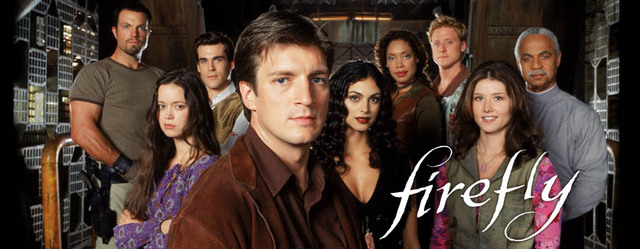
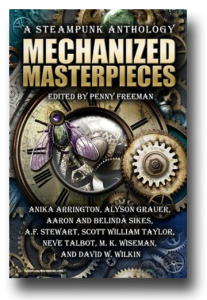
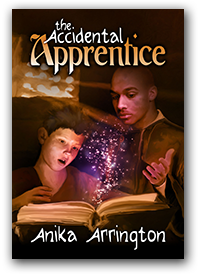
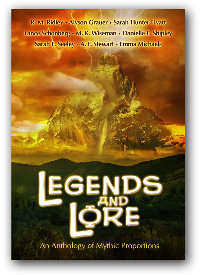



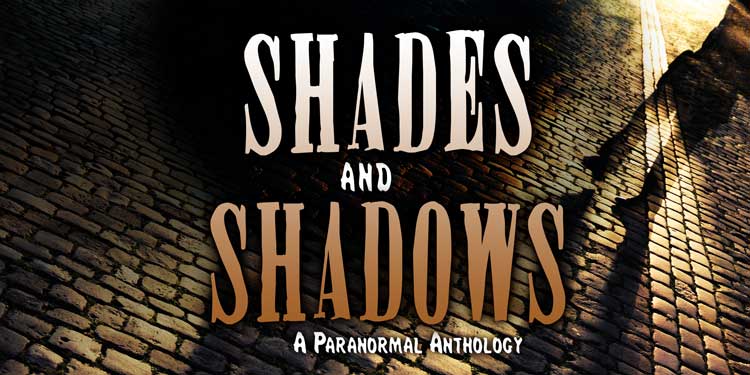
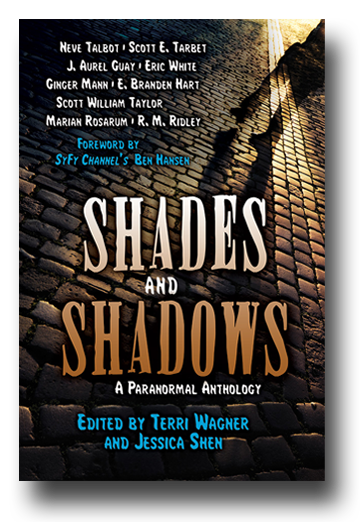


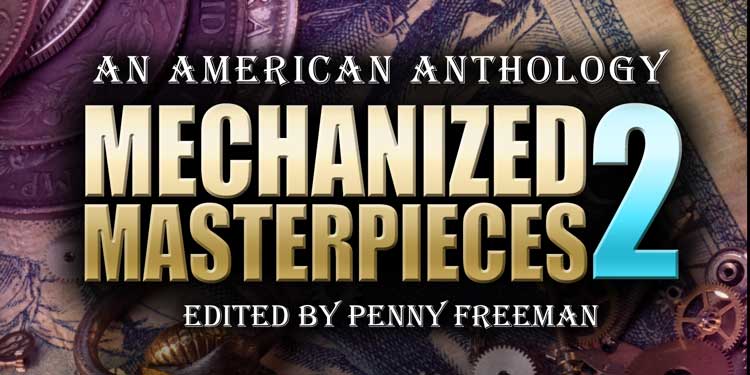
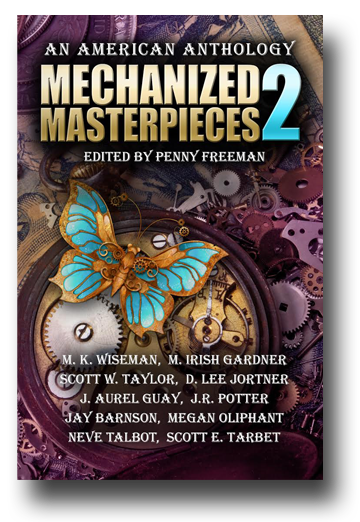

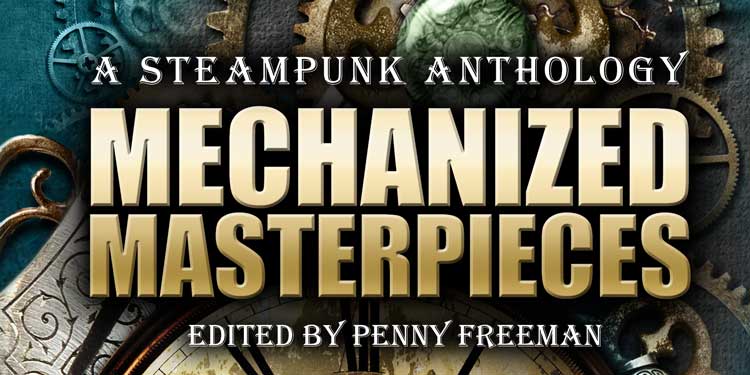
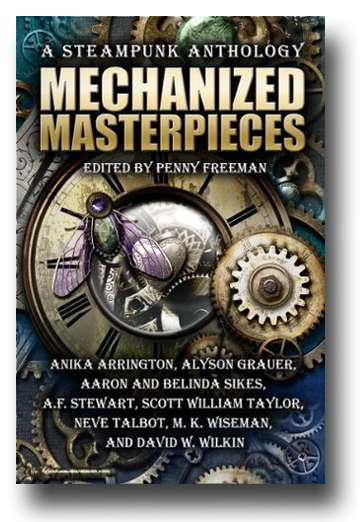
Recent Comments